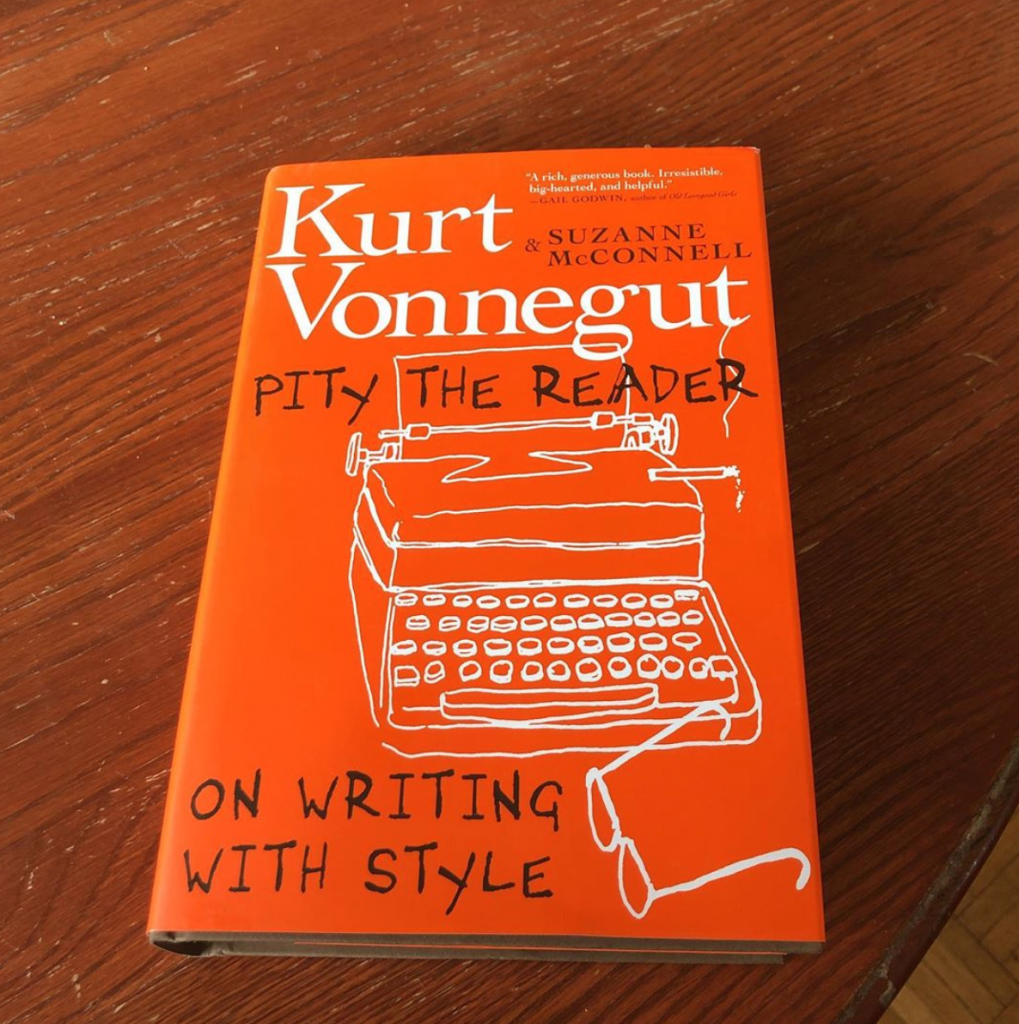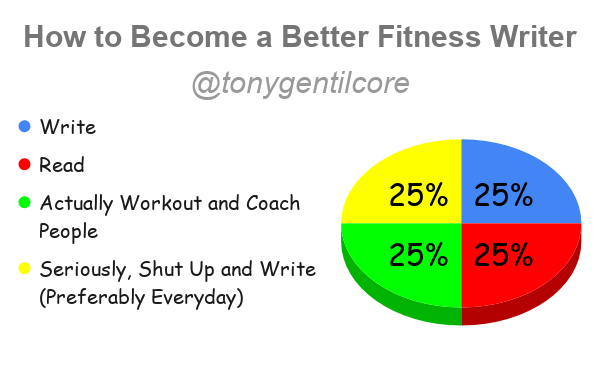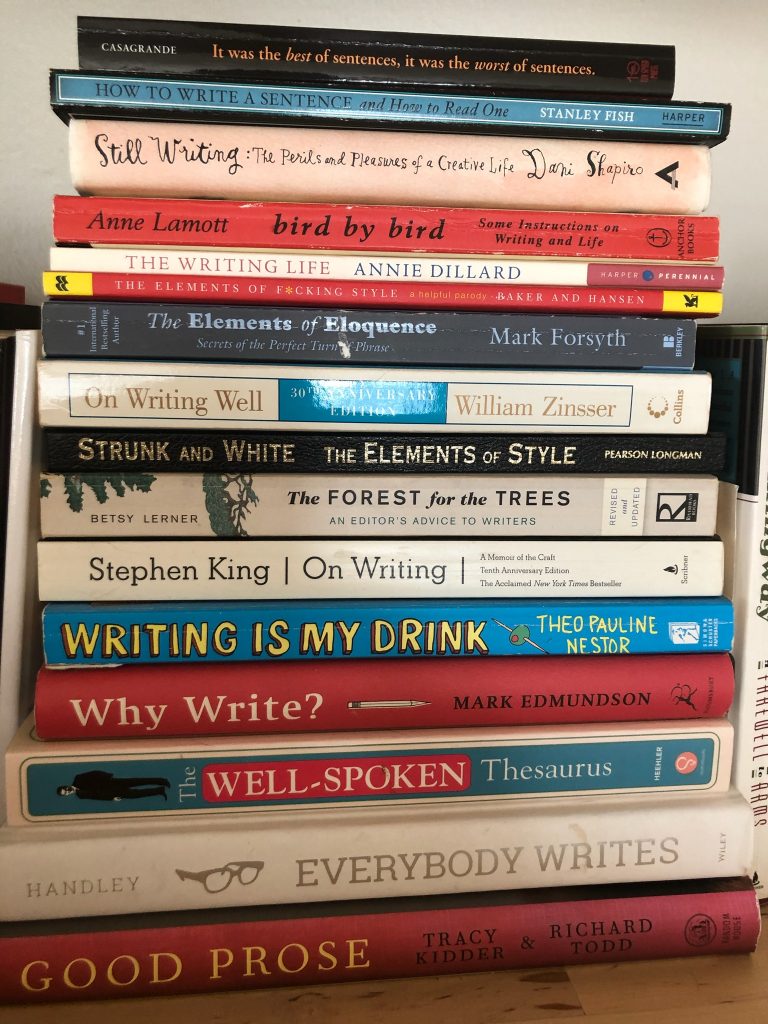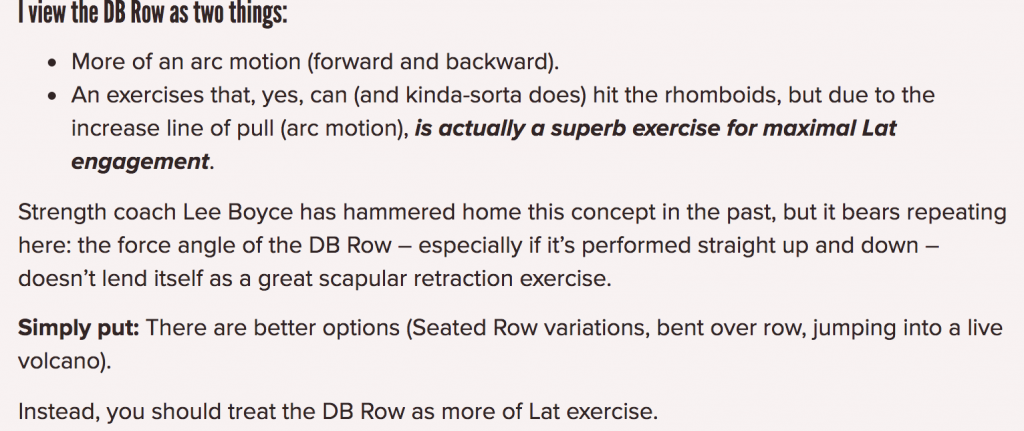The fact I’m writing a post on how to write, much less how to do it well, dumbfounds me.
I’ve joked in the past that I don’t consider myself a “writer” in the first place. I’m a strength coach who happens to have an ability to construct two coherent sentences back-to-back.
And sometimes, usually through sheer luck, use a semicolon as it’s intended.
I’ve also joked in the past that my high-school English teachers – Ms. Davie, Ms. Gambitta, and Mrs. LaVack – would shit a copy of For Whom the Bell Tolls if they knew that Tony Gentilcore, the same kid who could never grasp the difference between there/their/they’re and whom used adverbs incessantly (<— HA, see?!), had thousands of people read his website everyday and was a published author.
[Full credit to them for their patience back in the day.]
There’s other stuff that dumbfounds me too.
Like, why did Hollywood feel the need to remake the movie Point Break?
And what’s the rationale in calling something “vegetarian meat loaf?” That makes no sense. There’s no dead animal involved. Why not just call it vegetarian loaf?
Or, I don’t know, sawdust?
But as it stands, as far as things that really dumbfound me, seeing my name in the likes of Men’s Health, T-Nation.com, Women’s Health, Men’s Fitness, and many other reputable fitness publications on a regular basis is nuts.
However that dumbfoundedness (did I just make up a word?) isn’t devoid from a sense of pride and accomplishment.
Nevertheless, whenever I travel for workshops (or get invited onto a podcast) it’s not uncommon for the conversation to sway towards writing and how to get better at it.
Fitness professionals from all walks of life and backgrounds are interested in this topic. And it makes sense. Writing is a fantastic way to get your name out there and your information/expertise in front of more eyes.
Due to the digital nature of our society and the ease of access to information there is something to consider:
It’s never been easier to be heard, however it’s never been harder to get heard.
The fitness industry is saturated with everyone vying for everyone else’s attention. Writing, writing well, and possessing the ability to get (and maintain) people’s attention is a bonafide way to separate yourself from the masses.
Here are some ways to do so.
1. Becoming a Better Writer = Becoming a Better Reader
I don’t know of any writer worth his or her’s weight in number 2 pencils who doesn’t also have an insatiable appetite for reading.
“Reading—the good and the bad—inspires you. It develops your palate for all the tricks that writers have invented over the years. You can learn from textbooks about the writing craft, but there’s no substitute for discovering for yourself how a writer pulls off a trick. Then that becomes part of your experience. – Roz Morris“
I can’t tell you how many times I’ve caught myself marinating in a sentence or paragraph when reading, transfixed by the genius and wordsmithery (I think I just made up another word) of the author.
I’ve heard of other writers doing the same – so I don’t feel weird in divulging this – but it’s not uncommon for me to read someone’s prose and re-write it in a notebook or on my laptop just so I can gain a sense of what it feels like not to suck.
From Ernest Hemingway to J.K Rowling, Malcolm Gladwell to Lou Schuler, and Robert Ludlum to Dr. Seuss…try to immerse yourself with a variety of authors and genres (books, blogs, articles, etc).
It’ll not only broaden your palate, but help you to find your own writing style to boot.
2. Write To Your Strengths
Who better to quote here than one of my all-time favorite writers, Kurt Vonnegut:
“Find a subject you care about and which you in your heart feel others should care about. It is this genuine caring, not your games with language, which will be the most compelling and seductive element in your style.”
This is a particularly prudent piece of advice for (fitness) writers.
If your passion and strengths as a fitness professional reside in fat-loss, how to get people shredded, and arguing over ideal macronutrient breakdowns, then that’s what you should write about.
If you work with athletes, tend to gravitate towards getting people stronger, and want to turn people into deadlifting Terminators, then it makes sense to stay in your lane and talk about that sort of stuff.
If your speciality is how to train bomb-sniffing dolphins, write about that.
Of course, this isn’t to imply you should never go off the beaten track; there’s only so many articles you can write about the deadlift before you want to jump through a pane-glass window.
However, be forewarned that if you do choose to go outside your scope of expertise, you do run the risk of opening yourself up to an exponentially increased level of fuckery.
The internet trolls will get ya.
3. Everything Counts as Writing
I spend a large portion of my day responding to emails. Does that not count as writing?
We’re programmed to think that “writing” only counts if we’re writing a novel, and that’s simply not the case.
Writing a blog is writing.
Answering emails is writing.
Tweeting is writing.
Updating a Facebook status is writing.
Signing another restraining order is writing.
It all counts, and it all allows for an opportunity to get better. Check out Ann Handley’s book, Everybody Writes. It’s a game changer.
4. Find Your Creative Space (and Time)
Some people find their writing groove sitting at home in the peace and quiet. Others prefer to head to their local coffee shop or cafe, where the ambience and background noise helps them to focus more.
Everyone’s different.
Me? My best writing occurs while flying in a F-16 fighter jet.
Likewise, some people find their creative juices are flowing more in the AM hours; others in the PM. I’m in the former camp. After coaching for a few hours the last thing I want to do when I get home at night is sit in front of my computer and pontificate on what to write about.
Not when there’s Netflix to be watched anyways.
Suffice is to say I’ve found my most productive hours to write are between 8-12 in the morning. Anything outside that window is a bonus.
Find what works best for you and what fits your schedule.
5. F*****G Write!
Stop emailing me or reading articles on “how to write,” and just go write for crying out loud. Make it a habit to do it everyday – whether it’s 50 words or 500.
You have to start somewhere.
It’s not a sexy piece of advice, but consistency and repetition is paramount. It’s what every writer in the history of ever will tell you to do.
It’s that simple.













